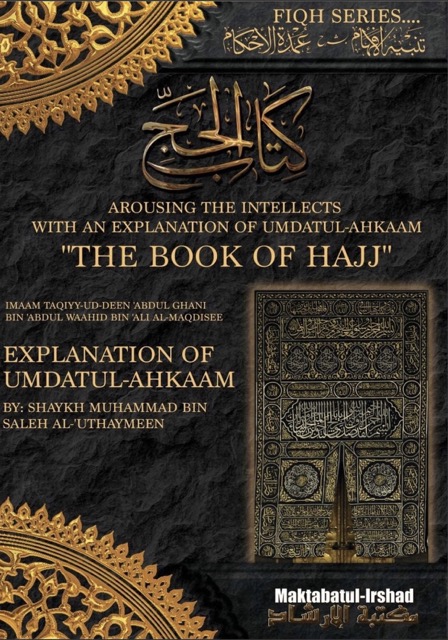
Umdatul-Ahkaam: The Book of Hajj
Translator: Fluent Trasnlation, Abdullah Omran
Description: Hajj linguistically means intention or heading towards. In Islamic Law, Hajj means heading towards Mecca to perform the rituals of Hajj. Hajj is one of the pillars of Islām and the proofs for the obligation of Hajj are in the Qur’an, the Sunnah and the decisive Ijma’ (consensus of Muslims). Allāh the Most High says: “For Allāh, upon mankind, is the pilgrimage to the house for those who can perform it and whoever disbelieves then Allāh is in no need of the creation.” Hajj is obligatory for a Muslim once in a lifetime, the Prophet Muhammad (May Allāh elevate his rank & grant him peace) said: “Hajj is performed once, so whoever increases on that then it is voluntary.” (Narrated by Ahmad and Nasā’ī and its origin is found in Muslim). Hajj was made obligatory after the conquering of Mecca in the ninth or tenth year after the Hijrah. The wisdom behind Hajj being obligatory is that it benefits and rectifies one’s religion and worldly affairs. For example, the worship of Allāh by leaving off of wearing stitched garments, by keeping away from those things that are forbidden for the pilgrim during Hajj, by circumambulating the Ka’bah and walking between the Safa and Marwa mountains, by visiting Arafah, by spending the night at Muzdalifah and Mina, by stoning the Jamrāt pillar, by shaving your head, etc. These various rituals of Hajj bring about many benefits like the gathering of Muslims and getting acquainted with one another, guiding one another, becoming aware of the situations of other Muslims, and planting seeds of love between them, etc.